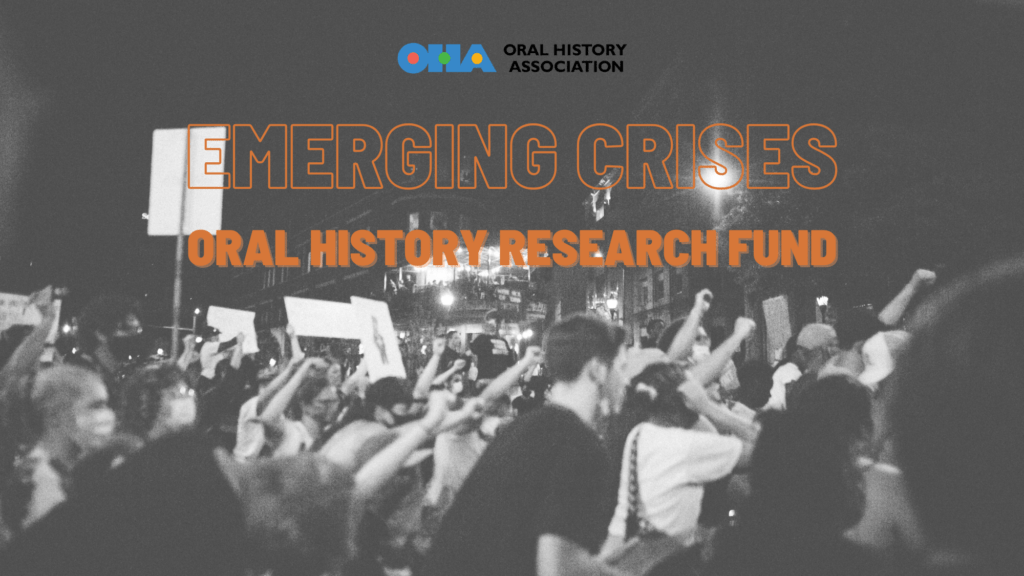Submission Portal Now Open For The 2024 Emerging Crises Oral History Research Fund!
Deadline: April 15, 2024 Oral historians can now apply for OHA’s 2024 Emerging Crises Oral History Research Fund through our online submission portal. The Emerging Crises Oral History Research Fund provides funding annually for one oral historian or project to undertake oral history research in situations of crisis in the United States and internationally. To […]
Submission Portal Now Open For The 2024 Emerging Crises Oral History Research Fund! Read More »

